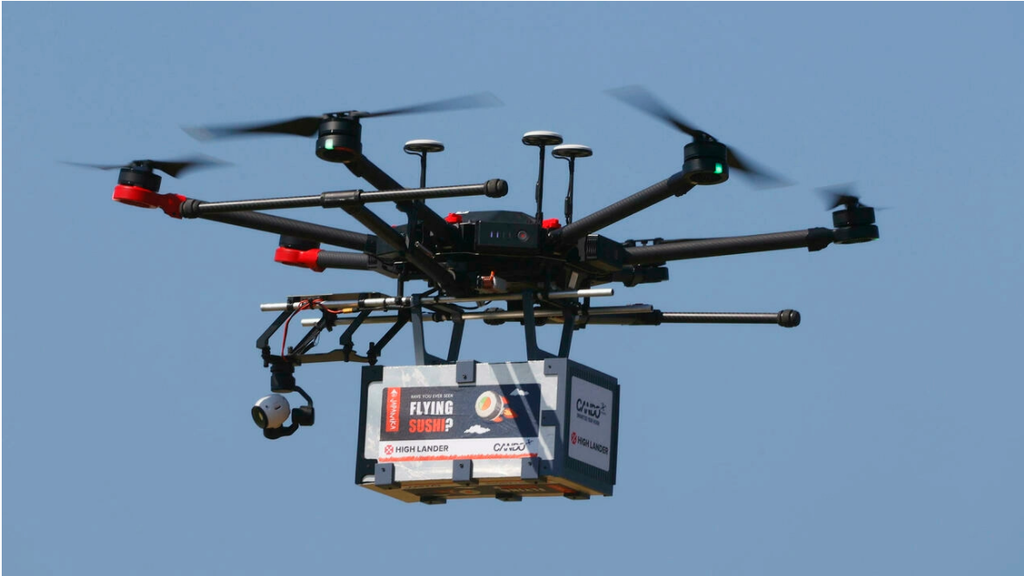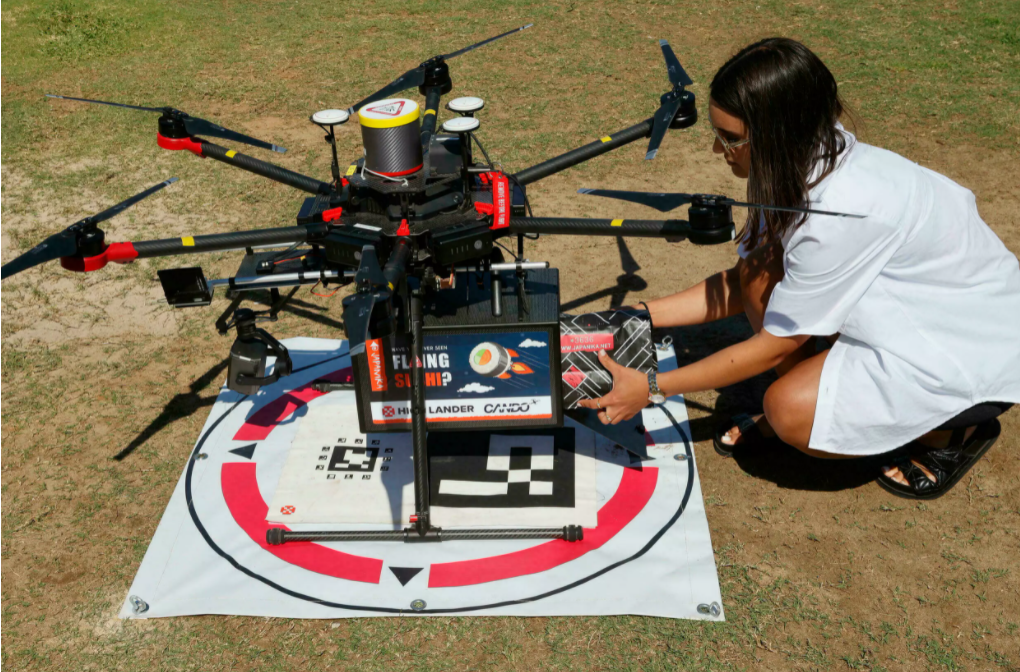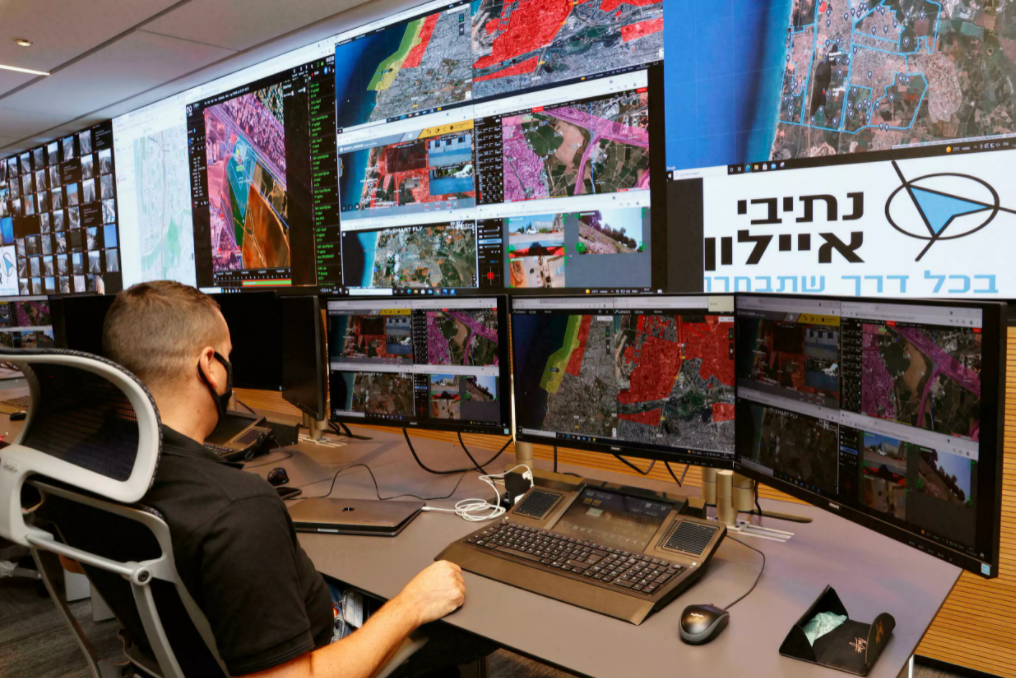Drone powerhouse Israel is translating the know-how of Air Force veterans to the delivery of sushi and ice cream, as companies tap their expertise to avoid collisions in increasingly crowded skies.
On a grassy stretch of a Tel Aviv beachfront, three drones flew above shiny high-rises this week, propellers buzzing as they lowered down onto landing pads.
3 View gallery


A drone carrying a box marked 'Flying Sushi' is airborne in the coastal city of Herzliya
(Photo: AFP)
Two carried sushi, and a third hauled cans of beer.
Their flight was made possible by High Lander, an Israeli company that specializes in traffic control for autonomous drones, and Cando, which helps craft drone strategies for clients.
"To fly one drone is not an issue," High Lander's chief executive Alon Abelson told AFP.
"We are talking about multi drones... coming from different drone manufacturers, but still they are monitoring with our software and we can make sure they don't collide."
The demonstration was part of a NIS 20 million, or about $6 million, public-private initiative to advance Israel's drone technology.
3 View gallery


The delivery demonstration was part of a NIS 20 million initiative to advance Israel's drone technology
(Photo: AFP)
Daniella Partem, who leads the drone initiative at the Israel Innovation Authority, said she envisioned "thousands" of drones flying simultaneously in crowded cities in the future, providing medical deliveries, bolstering police missions and speeding up takeout food.
"Our goal is to create a competitive market in Israel, not dominated by one company," she said.
"If we manage to remove vehicles from the roads to the air, we can affect traffic, we can reduce air pollution... we can create a better, safer environment for the delivery of goods."
Potential interest
Drone expert Michael Horowitz, a political scientist at the University of Pennsylvania, said Israel was crafting "civilian analogs" to its military drones that are getting smaller and can reportedly move and strike in coordination.
3 View gallery


An air traffic controller monitors screens at the Drone Air Control Centre in the Israeli coastal city of Tel Aviv
(Photo: AFP)
Israel's military drone program has faced criticism, especially from Palestinians in the blockaded Gaza Strip, who say it induces fear and can lead to the harming of civilians.
In the commercial drone industry, Horowitz said Israel could offer a new approach to companies that tend to develop their technologies alone.
"Often you'll have a company like Google that is operating oversight of its own systems only," Horowitz said.

